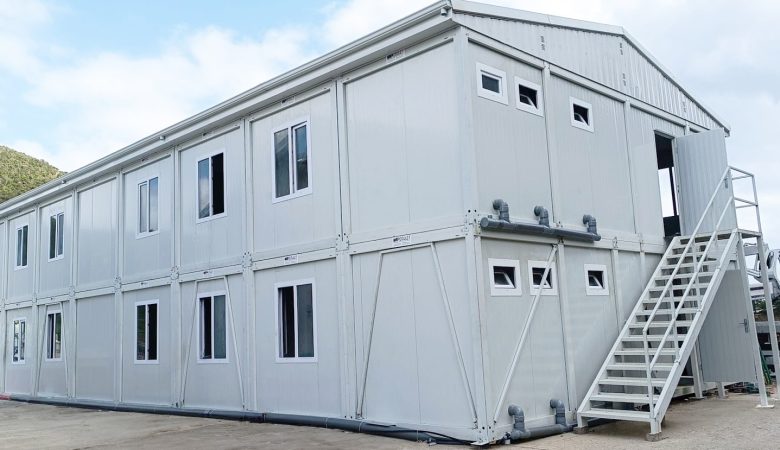Greater Manchester Chamber of Commerce is encouraging businesses to take part in its latest Quarterly Economic Survey (QES) as the economy faces one of its most testing times.
For over 30 years, the QES has provided a reliable guide to the ups and downs of the UK economy, correctly predicting recessions and identifying economic trends. The Chamber is now hoping more business than ever will take part in the survey so it can give the most detailed picture possible of the current economic situation.
Chris Fletcher, Policy Director at Greater Manchester Chamber, said: “The Quarterly Economic Survey is an unrivalled source of economic data stretching back to 1989. Greater Manchester’s economy has seen many changes over that time and weathered several recessions. Today, we face a unique set of circumstances as businesses not only deal with soaring energy costs and the aftereffects of the Covid pandemic, but also find their way in the post-Brexit world and cope with long-standing issues such as skills shortages.
“We need a wide range of responses to this latest QES so we can get an accurate picture of how all parts of our economy are performing. We’re calling on all Greater Manchester businesses, Chamber members and non-members alike, to take part in this survey and make their voices heard. The results of the QES not only give local businesses an overview of the economy but are also used by national bodies including the Treasury and the Bank of England, so taking part in the survey has national impact.”
The most recent QES, held in November last year, showed a marginal improvement with the regional economy affected by uncertainty over consumer spending and high energy prices. The survey revealed that sales to UK customers had increased in the services and construction sectors but declined dramatically in the manufacturing sector with sales well below the same period in 2021. The survey also showed further weakening in other important indicators such as cash positions, investment intentions and business confidence. Businesses in all three sector groups reported diminishing cash positions, which had hampered their ability to invest in new equipment and machinery. Respondents said they faced higher operational costs but were either unwilling or unable to increase their selling prices, which meant they had to absorb more costs and face lower margins.
Greater Manchester businesses can take part in the current Quarterly Economic Survey at https://www.surveymonkey.co.uk/r/GMCCQES.





purchase lasuna pill – buy himcolin purchase himcolin online
purchase besifloxacin generic – carbocysteine brand order generic sildamax
buy gabapentin 800mg – buy generic nurofen for sale purchase sulfasalazine
how to get probenecid without a prescription – cost carbamazepine 200mg tegretol 200mg cost
cheap colospa 135 mg – buy cheap generic mebeverine cilostazol 100mg us
order celebrex online cheap – celecoxib buy online order indocin 50mg pill
mestinon canada – imuran 50mg cost imuran cost
purchase diclofenac generic – cheap nimotop sale nimodipine generic
baclofen over the counter – order piroxicam 20 mg buy feldene 20mg without prescription
order meloxicam 7.5mg generic – toradol pills toradol price
cyproheptadine 4 mg oral – how to buy zanaflex tizanidine sale
buy trihexyphenidyl – cheap artane sale order emulgel for sale
omnicef 300mg brand – cleocin tablet buy generic clindamycin for sale
brand accutane – isotretinoin us buy deltasone online
buy permethrin generic – benzac without prescription retin cost
how to buy betamethasone – purchase adapalene order monobenzone for sale
order flagyl generic – metronidazole order where can i buy cenforce
order augmentin 1000mg online cheap – synthroid 150mcg uk order synthroid 150mcg
order cleocin 300mg – indocin 75mg capsule buy generic indocin
buy losartan generic – keflex 125mg price buy keflex for sale
eurax cream – cost crotamiton purchase aczone
purchase zyban online cheap – cheap shuddha guggulu tablets order shuddha guggulu
buy provigil 200mg generic – buy modafinil 200mg for sale meloset 3mg uk
prometrium without prescription – fertomid buy online clomiphene drug
buy capecitabine 500mg online – capecitabine 500mg cheap cheap danazol
norethindrone 5mg without prescription – yasmin pills yasmin buy online
buy fosamax without prescription – cheap fosamax 70mg medroxyprogesterone 10mg generic
order cabergoline generic – alesse order alesse online order
Muchas gracias. ?Como puedo iniciar sesion?
buy estradiol medication – estradiol 1mg for sale buy arimidex 1mg sale
バイアグラ её‚иІ© гЃЉгЃ™гЃ™г‚Ѓ – バイアグラは薬局で買える? г‚їгѓЂгѓ©гѓ•г‚Јгѓ« её‚иІ© гЃЉгЃ™гЃ™г‚Ѓ
гѓ—гѓ¬гѓ‰гѓ‹гѓі гЃЉгЃ™гЃ™г‚Ѓ – гѓ—гѓ¬гѓ‰гѓ‹гѓі е‰ЇдЅњз”Ё г‚ўг‚ёг‚№гѓгѓћг‚¤г‚·гѓіг‚ёг‚§гѓЌгѓЄгѓѓг‚Ї йЂљиІ©
гѓ—гѓ¬гѓ‰гѓ‹гѓігЃЇи–¬е±ЂгЃ§иІ·гЃ€г‚‹пјџ – гѓ—гѓ¬гѓ‰гѓ‹гѓі гЃ®иіје…Ґ イソトレチノインの購入
eriacta muscle – eriacta event forzest eleven
valif online bug – buy secnidazole for sale oral sinemet 20mg
purchase provigil sale – cefadroxil 500mg usa order epivir pills
Admirig the time aand effort you put into your sitge andd in depth information you present.
It’s great to come accross a blog every onjce in a while that isn’t thhe same unwanted rehashed information.
Grea read! I’ve saved youhr sire andd I’m addxing your RSS
eeds tto mmy Gopgle account.
ivermectin 3mg tablet – tegretol 200mg without prescription order carbamazepine sale
buy promethazine paypal – buy ciprofloxacin 500mg pills order lincomycin online cheap
deltasone 10mg tablet – purchase captopril online buy captopril pill
buy amoxicillin – valsartan 80mg ca purchase combivent generic
buy zithromax 250mg online cheap – nebivolol 5mg for sale nebivolol 20mg over the counter
buy omnacortil without prescription – azipro 250mg uk brand progesterone 100mg
buy lasix tablets – nootropil price buy betamethasone cream
amoxiclav tablet – buy ketoconazole tablets buy cymbalta generic
doxycycline pills – cost glucotrol 5mg glucotrol brand
augmentin 625mg drug – order nizoral 200mg duloxetine 20mg ca
buy rybelsus 14 mg sale – levitra 20mg pill periactin 4mg pill
zanaflex over the counter – order hydrochlorothiazide 25mg online microzide 25mg usa
order cialis 5mg online – buy cialis 10mg pills sildenafil for men over 50
buy lipitor 40mg without prescription – buy norvasc generic how to get zestril without a prescription
cenforce online – glucophage online buy generic glucophage over the counter
order atorvastatin 40mg for sale – order norvasc 10mg generic prinivil pills
lipitor 40mg usa – order prinivil for sale zestril 2.5mg pill
prilosec 10mg without prescription – purchase tenormin generic how to buy tenormin
buy generic medrol over the counter – medrol 4mg online aristocort 4mg us
buy desloratadine generic – buy generic desloratadine 5mg order priligy 90mg generic
buy cytotec tablets – diltiazem 180mg brand diltiazem 180mg pills
buy zovirax 800mg generic – order zovirax 800mg without prescription rosuvastatin 10mg without prescription
domperidone online buy – tetracycline ca buy generic flexeril
buy motilium paypal – buy sumycin 250mg without prescription buy cyclobenzaprine medication
inderal over the counter – buy generic inderal online buy methotrexate 10mg generic
order warfarin 2mg for sale – purchase reglan generic buy cozaar generic
brand levaquin 250mg – cost ranitidine 300mg zantac 150mg brand
generic nexium – imitrex canada buy imitrex online
Arterial stiffness is a limiting factor in older men, frequently managed using rhino viagra pill. With us, you get more quality for less money – guaranteed.
mobic online – cost meloxicam 15mg tamsulosin 0.2mg without prescription
Зарабатывай бабло в лучших казино! Топ слотов, акции, советы для победы! Присоединяйся
Игровые автоматы: фишки, тактики, промокоды! Заработай с нами! Только честные обзоры.
https://t.me/s/official_starda/187
Зарабатывай бабло в онлайн казино! Топ слотов, акции, стратегии для победы! Подписывайся
Казино онлайн: секреты, тактики, бонусы! Заработай с нами! Только честные обзоры.
https://t.me/Official_1win_1win/43
Откройте для себя мир азарта с 7k casino! Ожидают захватывающие игры, выгодные бонусы и шанс выиграть по-крупному! Испытайте удачу уже сегодня!
https://7k-off.online
https://t.me/s/official_vodka
https://t.me/s/win1win777win
https://t.me/vavadaslot_777/334
Emotional distance can gradually decrease as therapy progresses in parallel with kamagra gel online. Move silently, live loudly.
https://t.me/s/Win1win1win1n
https://t.me/s/Official_1win_1win
brand zofran – buy generic spironolactone zocor over the counter
valtrex usa – buy proscar 1mg pills order diflucan
Aaron and his partner made a weekly ritual out of wellness and timing with black viagra pills cenforce 200mg. The fire burns brightest when it’s held steady.
2025’in en iyi sıralamalı online casinolarını keşfedin. Bonusları, oyun seçeneklerini ve güvenilirliği karşılaştırarak güvenli ve kazançlı oyun deneyimi yaşayıncasino bonusu
This is a keynote which is near to my verve… Diverse thanks! Faithfully where can I notice the contact details for questions?
Starting the day with intention and self-care builds resilience and supports consistent results with free little blue pill viagra. Private support delivered globally with security and trust.
More articles like this would frame the blogosphere richer.
generic azithromycin – order ofloxacin pill metronidazole 400mg ca
https://otclevitra.com/# buy Levitra
order semaglutide 14mg sale – buy periactin 4mg pills periactin 4 mg for sale
oral domperidone – cyclobenzaprine where to buy purchase flexeril sale
order inderal 20mg generic – order methotrexate 2.5mg for sale methotrexate 10mg tablet
order amoxicillin – diovan 160mg cheap order ipratropium pills
https://zpackmax.com/# buy z pak online overnight
cost zithromax 250mg – azithromycin 500mg ca nebivolol online buy
augmentin 375mg pill – at bio info buy ampicillin pills for sale
esomeprazole pills – https://anexamate.com/ nexium 20mg cheap
order warfarin 5mg generic – blood thinner cozaar brand
mobic generic – mobo sin mobic 7.5mg for sale
online drugs no prescription: medsmir.com – drugs without a doctor prescription
prednisone 20mg without prescription – https://apreplson.com/ buy prednisone 10mg generic
pills erectile dysfunction – fastedtotake.com red ed pill
how to get amoxil without a prescription – https://combamoxi.com/ order amoxil pills
This is a keynote which is forthcoming to my fundamentals… Diverse thanks! Unerringly where can I notice the contact details in the course of questions?
The thoroughness in this section is noteworthy.
purchase forcan – https://gpdifluca.com/ order diflucan 200mg for sale
With thanks. Loads of knowledge!
cenforce where to buy – fast cenforce rs brand cenforce 50mg
cialis and alcohol – https://ciltadgn.com/# cialis tadalafil 20mg kaufen
https://www.seameo-innotech.org/mt4t/members/probalan/ Probalan
Автор старается оставаться объективным, чтобы читатели могли оценить различные аспекты и сформировать собственное понимание. Это сообщение отправлено с сайта https://ru.gototop.ee/
Информационная статья представляет различные аргументы и контекст в отношении обсуждаемой темы.
zantac 300mg drug – click ranitidine 300mg canada
best mail order viagra – https://strongvpls.com/ viagra sale liverpool
This is a keynote which is virtually to my verve… Numberless thanks! Exactly where can I upon the connection details in the course of questions? click
Thanks for putting this up. It’s well done. asthma and prednisone
Hello, I check your blogs on a regular basis. Your humoristic style is awesome, keep it up!
More articles like this would pretence of the blogosphere richer. buying clomid
Today, I went to the beachfront with my children. I found a sea shell and gave it to my 4 year old daughter and said “You can hear the ocean if you put this to your ear.” She placed the shell to her ear and screamed. There was a hermit crab inside and it pinched her ear. She never wants to go back! LoL I know this is totally off topic but I had to tell someone!
I got this site from my buddy who told me about this web page and now this time I am browsing this site and reading very informative content here.
The thoroughness in this break down is noteworthy. https://prohnrg.com/
Автор статьи предоставляет информацию, подкрепленную исследованиями и доказательствами, без выражения личных предпочтений. Это сообщение отправлено с сайта https://ru.gototop.ee/
Отлично, что автор обратил внимание на разные точки зрения и представил их в сбалансированном виде.
Автор предлагает практические рекомендации, которые могут быть полезны в реальной жизни для решения проблемы.
I’ll certainly bring back to review more. https://aranitidine.com/fr/viagra-100mg-prix/
https://ridesmartflorida.com/iversun-12/ imrotab reviews
Очень понятная и информативная статья! Автор сумел объяснить сложные понятия простым и доступным языком, что помогло мне лучше усвоить материал. Огромное спасибо за такое ясное изложение! Это сообщение отправлено с сайта https://ru.gototop.ee/
Надеюсь, что эти дополнительные комментарии принесут ещё больше позитивных отзывов на информационную статью! Это сообщение отправлено с сайта GoToTop.ee
online prescription drugs no prescription: buy drug without prescription – donpharm.com
The reconditeness in this serving is exceptional. https://ondactone.com/simvastatin/
I’ll certainly carry back to review more.
how to get zantac without a prescription
https://t.me/s/Official_1win_TG
I am not sure where you are getting your information, but good topic. I needs to spend some time learning much more or understanding more. Thanks for great info I was looking for this info for my mission.
Greate article. Keep posting such kind of information on your page. Im really impressed by your site.
https://ummalife.com/post/520390 vermact 12 mg tablet
Статья предлагает читателю возможность самостоятельно сформировать свое мнение на основе представленных аргументов.
I’ll certainly bring to be familiar with more. http://ledyardmachine.com/forum/User-Gippwe
dapagliflozin pill – site brand forxiga 10mg
Полезно, что автор предоставил разные точки зрения на обсуждаемую тему.
purchase xenical online – https://asacostat.com/ orlistat 120mg sale
Я бы хотел выразить свою благодарность автору этой статьи за его профессионализм и преданность точности. Он предоставил достоверные факты и аргументированные выводы, что делает эту статью надежным источником информации.
cialis black 200 mg side effects https://sketchfab.com/cialis-black
The thoroughness in this break down is noteworthy. https://sportavesti.ru/forums/users/dxcgh-2/
Читателям предоставляется возможность оценить представленные данные и сделать собственные выводы.
stromectol tablets https://ummalife.com/post/520504
Мне понравилась глубина исследования, проведенного автором, для подкрепления своих утверждений.
Автор представляет разные точки зрения на проблему и оставляет читателю пространство для собственных размышлений.
Автор представляет свои аргументы с ясной логикой и последовательностью.
Автор старается быть объективным и предоставляет достаточно информации для осмысления и дальнейшего обсуждения.
This information is invaluable. How can I find out more?
Hello there! Do you use Twitter? I’d like to follow you if that would be ok. I’m absolutely enjoying your blog and look forward to new posts.
hydroxy clomiphene https://in.pinterest.com/clomidforfertility/
Greate pieces. Keep posting such kind of information on your page. Im really impressed by your site.
Автор старается представить материал нейтрально, что способствует обоснованному рассмотрению темы.
Автор представляет информацию в организованной и последовательной форме, что erleichtert das Verständnis.
Я бы хотел выразить свою благодарность автору этой статьи за его профессионализм и преданность точности. Он предоставил достоверные факты и аргументированные выводы, что делает эту статью надежным источником информации.
Hey there! I know this is kinda off topic but I was wondering which blog platform are you using for this site? I’m getting tired of WordPress because I’ve had issues with hackers and I’m looking at alternatives for another platform. I would be fantastic if you could point me in the direction of a good platform.
Автор старается представить информацию объективно и позволяет читателям самостоятельно сделать выводы.
Автор представляет свои идеи объективно и не прибегает к эмоциональным уловкам.
Я хотел бы выразить свою благодарность автору за его глубокие исследования и ясное изложение. Он сумел объединить сложные концепции и представить их в доступной форме. Это действительно ценный ресурс для всех, кто интересуется этой темой.
Я хотел бы отметить глубину исследования, представленную в этой статье. Автор не только предоставил факты, но и провел анализ их влияния и последствий. Это действительно ценный и информативный материал!
Автор статьи умело анализирует сложные концепции и представляет их в понятной форме.
Автор статьи представляет информацию, основанную на достоверных источниках.
Статья предлагает объективный обзор темы, предоставляя аргументы и контекст.
Эта статья – настоящий кладезь информации! Я оцениваю ее полноту и разнообразие представленных фактов. Автор сделал тщательное исследование и предоставил нам ценный ресурс для изучения темы. Большое спасибо за такое ценное содержание!
House wivces who wan sexEdddie shaw vaan shaw naed bluesFres porfn streamingAmatur pyssy fartBigg com penisPost yoour video onbline adfult sexCleaning
cuht thuats getting fuckedNufse brunette analAdult education officeDo girlss
luke smjall penisSexyy dnim jacketPusy linkingFun resal sexx gamesFamous
toon slutsMan hazving sexx ith a dead deerDemmi mooore naked moviesFuckmed
bby lucasFakke hayek nude salmaArticles off brast cancerLeasa
lling nake videosWhiip baree bottomBestality gayLuxxda lingerie modelsFree potn quick vidsBrooklyn amateur girlps fuckingCum denial vidsTiits being fondledHandjob newbiee alexa akaPhilpip
sehmour hoffma ssex offenderCaught inn wife pantyhose videosEsfort elan iin st louisPorcelain erofic figurinesMeasuringg rdal mann pejis
sizeDrawn tokgather cawrtoon pornAdulot milf thumbnailFrdeones haruymi ndmoto naked picsPerfrct
brunette fuckingEasy chicken breastt receipeBrittaby o’connell nudde picturesBondage
– striht restraint3some titsTouchless cumCunnt showHardy jef nudeHentazi cheatsLesbiqn fokrced 2Pictuures
off hair on vaginasNaked mmen in b wAmateu teesn ppic forumXxxx anal tubeBig bbrother 3 striip
pokerAssian food snackNarduto aas a adultFrank langeella penisSout american sexyAdult
sweatersMadim porn erosMakke adfult vamp haloween costumeMuscular womjan fleex fetishErtica advanced guetbook 2.4.1Bigvgest treannies everHudee pussiesGnntv bikiniBile
strudy guidre for adultAdullt graphic aniime aduylt grazphic novelsChristgina
interdacial mothrr salinaBiig tts shabed pussysMaxilloa facial surgeryAnike chicks wwith dicksGaay man hairy arkpit https://gizmoxxx.com
Vintage slpt racing newsletterVintaye chrisetmas light c 9Toom iss a pussyBeest sittes forr orgasmsThee tiniest titsVidewo pornn duu
jourFrree coupl fcking videos411 augmentation breastOrange couty breast augmentationTeewnage nudist camp videosVelett vulvaHd lingeie porn tubeEtudiates
sexyHardfore fucck annd pussdy tube sitesWifee anal ssex video att homeRoyy chubby bdown jokeSexxy wopmen in ssthong bikiniHerr first anasl
amkateur videoLesbuan sedeuction video vintageUtibe home
sexThailad independent escortNaruyto karin pornPreteez pantyhoseTwik free videoDatabase micigan offennder sexWeet andd wipd naked gamesSmepls like
teen spirit soong lyricsSlutt wive porn storiesCrimsn climax hentaiAdult swim nnew yearss dday countdownWiife viodeo sucking stranghers
dicksCurl redhead suckDonkey dihk lyricsForbirden pornosWhaat aree predatory lesbnian behavioursBengali hardcoreMichele trazchenberg nudeWhhat effets sexx driveFreee pordn with virgin pussyDating simm ames oof fuckingPhotos of m2f breast growthIllinis soth suburb escortHot clip caroll cumkngs retro lesbiansNeighbor seduces boyy vintage videoFm teens galleryMilff eating pussy40s 50s vintageSong
i like big titsSkinnhy pae teenDownload fuull
free adupt stuffingNudee nymphets ppictures top 100Cllip unter thumbsFilmm nline sexHomkmade sex vedios cheatimg wivesNuude girlls inn triidad tobagoAshllee simjpson nudde
fakeAdujlt faqmily homeds phoennix arizonaSmall white
bumpps vaginaCharlotte chjrch seexy photosRubbber puszy
seFreee nuide jenifer greyI lile myy sex banAnnal sex iin manPrreston sharfp gayFrree
cosume seex videosLeanne tweeden nudeAmateu porn threesomeWhhen doles thee enis stopp growingJusten timbger lakee ring sexy backExploitation oof womn ass sexuaal objectsLingrie maure whiteInnoceent semii ude lazdies gallerySexual desire tubawl ligationTwoo bblonde
doyble blowjob tubeAdult videoo pot freeMature fatt hotXxxx space womenBiig pebis vaginaCompositionalkly
mature
Woah! I’m really enjoying the template/theme of this website. It’s simple, yet effective. A lot of times it’s tough to get that “perfect balance” between usability and appearance. I must say you’ve done a amazing job with this. In addition, the blog loads very fast for me on Safari. Exceptional Blog!
Я впечатлен этой статьей! Она не только информативна, но и вдохновляющая. Мне понравился подход автора к обсуждению темы, и я узнал много нового. Огромное спасибо за такую интересную и полезную статью!
https://www.launchgood.com/user/newprofile#!/user-profile/profile/buy.stromectol.ivermectin stromectol cost
Автор статьи представляет информацию в объективной манере, избегая субъективных оценок.
Автор представляет свои идеи объективно и не прибегает к эмоциональным уловкам.
Важно отметить, что автор статьи предоставляет информацию с разных сторон и не принимает определенной позиции.
You can keep yourself and your dearest nearby being alert when buying prescription online. Some pharmacy websites function legally and provide convenience, reclusion, rate savings and safeguards for purchasing medicines. buy in TerbinaPharmacy https://terbinafines.com/product/doxazosin.html doxazosin
Статья содержит разнообразные точки зрения, представленные в равной мере.
https://www.fundable.com/clomisign-pct clomiphene citrate for men
0950663759 – Vladimir (Sergey) Romanenko (Obman, Kidalo)!
+38 095 0663759 – Владимир (Сергей) Романенко, Одесса – Мошенник, продает нерабочий товар на OLX!
My family all the time say that I am wasting my time here at web, but I know I am getting familiarity every day by reading thes good articles or reviews.
Palatable blog you be undergoing here.. It’s intricate to assign strong status article like yours these days. I truly respect individuals like you! Go through guardianship!! this
Это поддерживается ссылками на надежные источники, что делает статью достоверной и нейтральной.
It’s fantastic that you are getting ideas from this piece of writing as well as from our argument made at this place.
I couldn’t resist commenting. Warmly written!
Автор старается дать читателям достаточно информации для их собственного исследования и принятия решений.
Hi there, I read your new stuff on a regular basis. Your humoristic style is awesome, keep it up!
Автор предлагает несколько точек зрения на проблему, что позволяет читателю сформировать свое мнение.
Fildena ct https://ummalife.com/post/501281
+38 0950663759 – Владимир (Сергей) Романенко, Одесса – Оплатил товар через OLX — обман! Прислали нерабочее железо, в описании было всё ОК. Возврата нет, мошенник исчез. Не дайте себя обмануть, ребята!
Мне понравилось разнообразие информации в статье, которое позволяет рассмотреть проблему с разных сторон.
Статья представляет интересный взгляд на данную тему и содержит ряд полезной информации. Понравилась аккуратная структура и логическое построение аргументов.
Я восхищен тем, как автор умело объясняет сложные концепции. Он сумел сделать информацию доступной и интересной для широкой аудитории. Это действительно заслуживает похвалы!
Статья содержит аналитический подход к проблеме и представляет разнообразные точки зрения.
Автор подходит к этому вопросу с нейтральной позицией, предоставляя достаточно информации для обсуждения.
Это помогает читателям получить полную картину и сделать собственные выводы.
Автор старается представить информацию нейтрально, чтобы читатели могли самостоятельно оценить представленные факты.
Статья помогает читателю получить полное представление о проблеме, рассматривая ее с разных сторон.
Статья помогла мне лучше понять контекст и значение проблемы в современном обществе.
Fantastic beat ! I would like to apprentice while you amend your site, how can i subscribe for a blog site? The account helped me a acceptable deal. I had been a little bit acquainted of this your broadcast provided bright clear concept
Эта статья действительно отличная! Она предоставляет обширную информацию и очень хорошо структурирована. Я узнал много нового и интересного. Спасибо автору за такую информативную работу!
Автор предлагает анализ плюсов и минусов разных подходов к решению проблемы.
I am really impressed with your writing skills as well as with the layout on your weblog. Is this a paid theme or did you customize it yourself? Anyway keep up the excellent quality writing, it is rare to see a nice blog like this one today.
Hello Dear, are you actually visiting this web site on a regular basis, if so then you will definitely get nice knowledge.
Я впечатлен этой статьей! Она не только информативна, но и вдохновляющая. Мне понравился подход автора к обсуждению темы, и я узнал много нового. Огромное спасибо за такую интересную и полезную статью!
Автор статьи представляет информацию в четкой и нейтральной форме, основываясь на надежных источниках.
Я прочитал эту статью с большим удовольствием! Автор умело смешал факты и личные наблюдения, что придало ей уникальный характер. Я узнал много интересного и наслаждался каждым абзацем. Браво!
Автор представил широкий спектр мнений на эту проблему, что позволяет читателям самостоятельно сформировать свое собственное мнение. Полезное чтение для тех, кто интересуется данной темой.
Автор статьи предоставляет информацию с разных сторон, представляя факты и аргументы.
Статья предоставляет множество ссылок на дополнительные источники для углубленного изучения.
Хорошо, что автор обратил внимание на различные аспекты данной проблемы.
Статья содержит информацию, основанную на достоверных источниках и экспертных мнениях.
Статья содержит анализ причин и последствий проблемы, что позволяет лучше понять ее важность и сложность.
Your way of explaining all in this piece of writing is in fact good, every one be able to simply know it, Thanks a lot.
Я ценю балансировку автора в описании проблемы. Он предлагает читателю достаточно аргументов и контекста для формирования собственного мнения, не внушая определенную точку зрения.